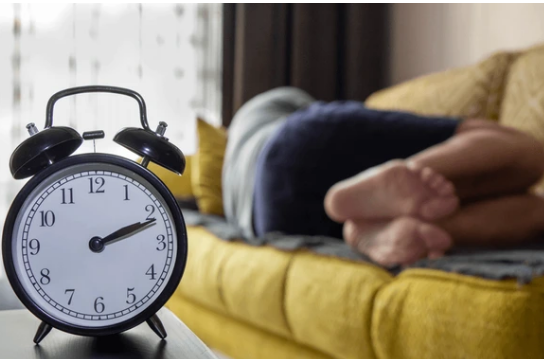When it comes to naps, timing is everything
Often people worry if they nap during the day, it will
jeopardise their chances of getting a good night’s sleep. Whether this happens
or not has a lot to do with timing for most people. A brief nap can be
refreshing and restorative, especially if you are sleep deprived, but longer
naps late in the day, can have a negative impact on your sleep duration and
quality. Sleep studies have shown that the best time to take a nap is in the
early afternoon, when most people experience a natural decline in energy and alertness.
Research from the National Centre of Biotechnology shows that afternoon naps,
when timed correctly, do not negatively impact a nighttime’s sleep.
It is all about the timing
In most cases the benefits of afternoon naps far outweigh
the drawbacks. Napping between 1pm to 3pm, has been found to boost energy
levels, increase alertness, improve mood, enhance memory and cognitive ability,
and improve physical ability. However, if you nap too late in the afternoon or
for too long, you may experience difficulties either falling asleep or staying
asleep at your usual bedtime. Therefore, most experts recommend avoiding naps
after 3pm to limit disruptions to your sleep schedule.

How do I stop feeling the post nap drowsiness?
To maximise the benefits of an afternoon nap, here are some
tips:
- Set an alarm. Shorter naps
of less than 30 minutes are less likely to cause drowsiness upon awakening.
Setting an alarm can help ensure you do not nap longer than intended. Shorter
naps allow the body to get some light sleep without entering deep sleep. If you
wake up during deep sleep, you may find yourself feeling even groggier than you
were before the nap.
- Nap earlier than later. If
possible, aim to take your nap in the early afternoon, rather than the late
afternoon. Later naps could be more likely to negatively impact nighttime
sleep. In general, experts recommend limiting your nap to at least 8 hours
before bedtime to avoid nighttime sleep problems.
- Block out distractions.
Blocking out distractions, like noise and light, can help when you are trying
to sleep during the day. Consider using light-blocking curtains or an eye mask
to block out light and earplugs to block out sound.
- A short early afternoon nap can
help you feel more alert and boost memory and performance. If your naps are
getting longer and more frequent, it can be a sign that you are sleep deprived
or not getting enough quality sleep, so talk to your doctor about assessing
your sleep quality and rule out any potential sleep disorders.